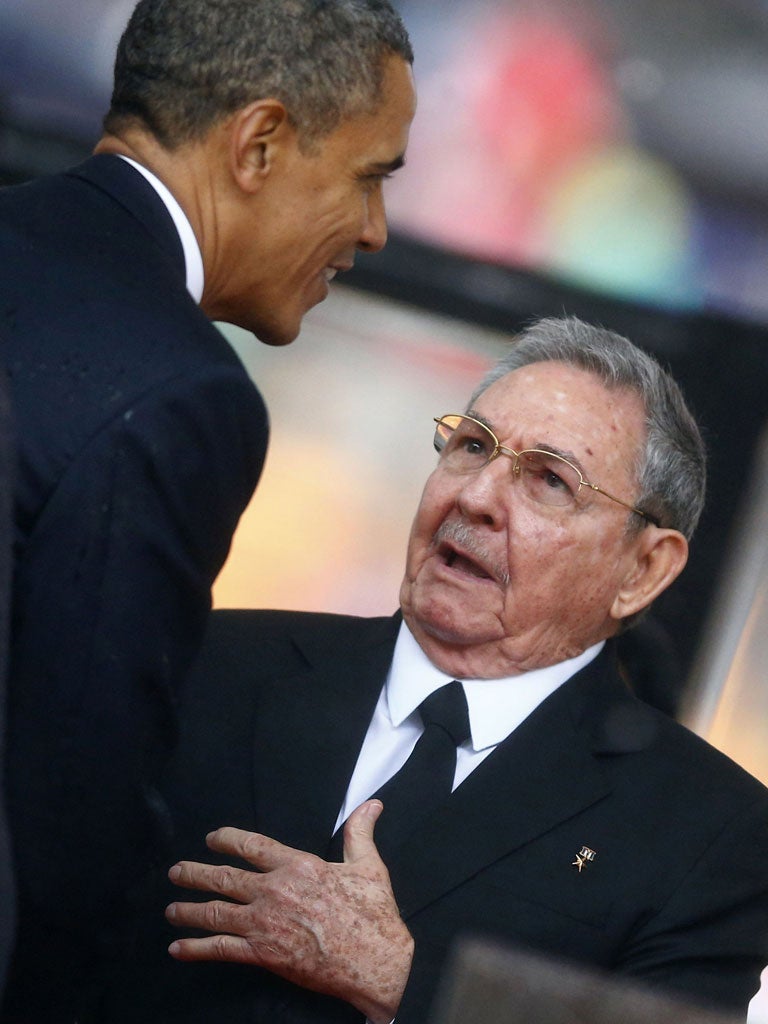2013 - the year in review: Barack Obama's new foreign policy marked the birth of a kinder, gentler nation
When Obama replaced the pins on those missiles aimed at Syria he was listening to his instincts – and to those who voted for him

Your support helps us to tell the story
From reproductive rights to climate change to Big Tech, The Independent is on the ground when the story is developing. Whether it's investigating the financials of Elon Musk's pro-Trump PAC or producing our latest documentary, 'The A Word', which shines a light on the American women fighting for reproductive rights, we know how important it is to parse out the facts from the messaging.
At such a critical moment in US history, we need reporters on the ground. Your donation allows us to keep sending journalists to speak to both sides of the story.
The Independent is trusted by Americans across the entire political spectrum. And unlike many other quality news outlets, we choose not to lock Americans out of our reporting and analysis with paywalls. We believe quality journalism should be available to everyone, paid for by those who can afford it.
Your support makes all the difference.It is enough to make you nostalgic for those early neo-con days of Bush and Cheney when America trod a predictable path on foreign policy, stuck by its friends and harassed (or invaded) its foes. In 2013, it was neither resolute nor loyal: Israel and Saudi Arabia are seething while buddy status has been conferred on Iran and Cuba.
The flap caused by Barack Obama clasping hands with Raul Castro at the memorial service for Nelson Mandela was the least of the storms. Senator McCain likened it to sucking up to Hitler, but he is good at hyperbole. Washington ruffled far more feathers by drawing Tehran into an interim agreement on restraining its nuclear ambitions and by scaling up for an attack on Syria and then scaling down again.
If you are among those who consider Obama feckless on foreign policy, it is the red line fiasco you might focus on first. In 2011 he said that Syria would cross it if it used chemical weapons. It did this summer. Everything was set for missile strikes until the British parliament and many Americans voiced their disapproval. The president abruptly said he would ask Congress before acting.
But Mr Obama is clear-eyed in a different way to Bush. He thinks thus: “If extemporising in the face of international crises makes me and America sometimes look weak, so be it. My goal is to resolve them without violence and if some unexpected door comes open to make that possible, I will walk through it”. In the case of Syria that was John Kerry blurting out that Bashar Al-Assad could remove the threat of strikes by handing over his chemical arsenal and Russia running with it. (And Assad signing up.)
This has been the year when America showed itself willing to accept that foreign policy is a complex business. Simplistic responses à la Bush are sometimes easier but won’t do. Yes, Iran may be taking Uncle Sam for a ride and yes, Israel and Saudi Arabia are yelling that from the rooftops. But all that is outweighed by the possibility that peaceful negotiations will remove the spectre of a nuclear-armed Iran.
And while the Syrian civil war rages on, it’s worth asking where we would be now if Mr Obama had succumbed to the old American reflexes of hit now, deal with the consequences later. He wasn’t weak when he replaced the pins in those missiles. He was listening to his own instincts and, by the way, to the instincts of those Americans who voted for him.
Join our commenting forum
Join thought-provoking conversations, follow other Independent readers and see their replies
Comments